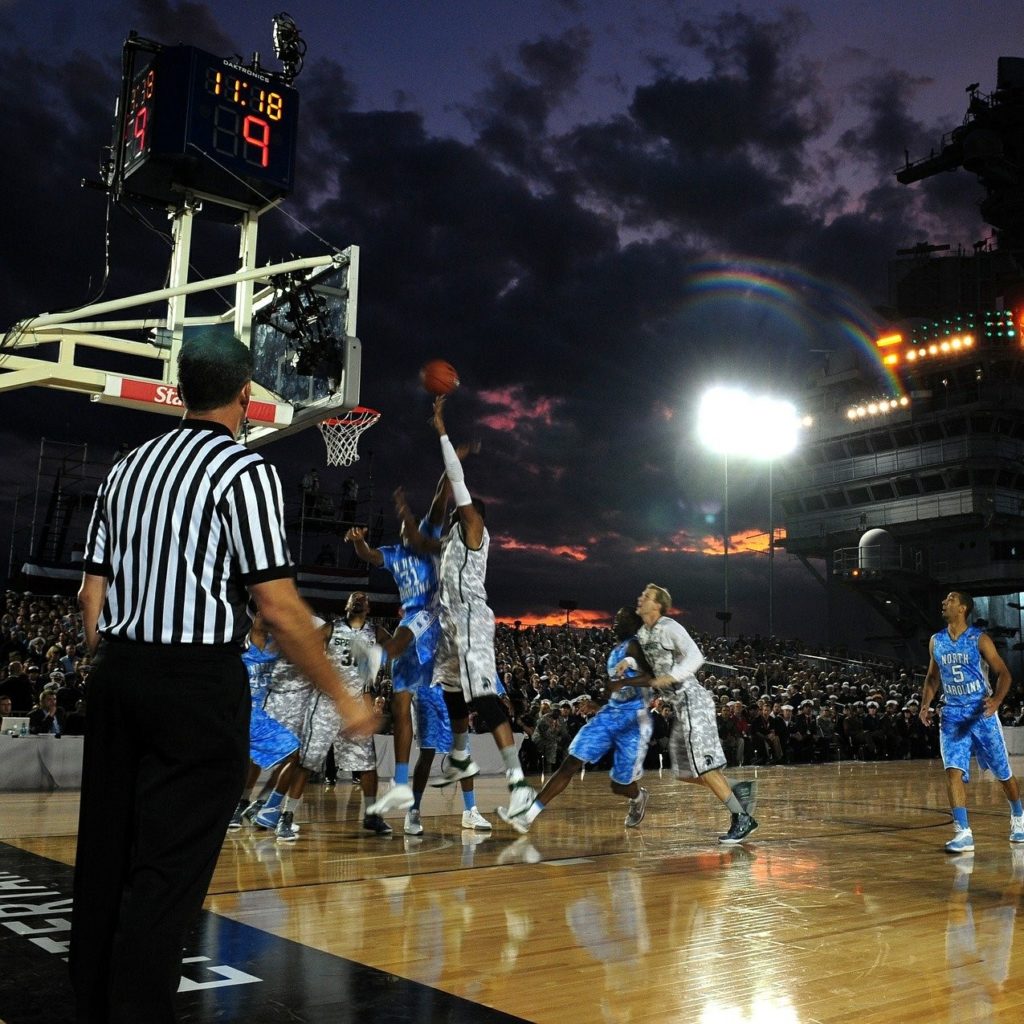The Development of Collegiate and Professional Esports: Interview with Chris Buckner, Mainline
by Mathew Broughton on 18th Nov 2019 in News

Following the completion of a USD$6.8m (£5.26m) funding round earlier in November, TheGamingEconomy spoke with Chris Buckner, co-founder and CEO of Mainline, to discuss the future of the collegiate esports market, and how its growth will carry through to the professional level.
Can you give us a brief history of Mainline, and the company's work to date?
I started my first company in 2014, a company called FanReact, which was a sports-only social media application. When we were acquired in 2016 we pivoted the company and it grew really, really quickly. We took the profits from that company and started Mainline in 2016 as a subsidiary, because we were using a lot of the same technology. Our first partner as such was Bluehole and PlayerUnknown's Battlegrounds (PUBG), as we had an organisation that we bought out of South Carolina called PUBGOnline, which was running around 6,000 yearly tournaments for PUBG specifically. Those tournaments kept getting bigger and bigger, to the extent that we had pretty much every professional PUBG player playing in them from across the world, and because of the success of those tournaments, we built software in order for us to automate a lot of the tournament process.
In addition, we started running more of the production elements for our tournaments in-house, for example we built a pretty much an entire set for the casting, interviewing, etc. It was because of this that we ended up getting the attention of ESPN, which led to us becoming the group that was handling a lot of the production and broadcast elements for ESPN's Collegiate Esports Championship (CEC). We therefore produced the TV show that they were running every Friday night for collegiate esports, and we were helping with tournament operations and administration for their live event.
So we took our tournament software at that time, and since we had so many connections in the collegiate space, we started licensing and white-labelling our platform to the schools individually so that they could have control, be able to grow their esports programmes, and use it as an opportunity to run officially-sanctioned events. That really started taking off like crazy. We started licensing out to universities and now to date we have about 30 universities that are either on board, or are planning to be on board by this spring. We also have a few other partnerships that are planned for 2020 that are pretty big.
How will the investment in Mainline be used to enhance the tournament software platform, as well as wider marketing efforts?

Chris Buckner, co-founder and CEO, Mainline
We've already beefed up since the raise came in. We've already picked up new development staff, both on the front-end and back-end, and hired new UX and UI designers. We've also grown our sales team, so we now have a senior director of partnerships working alongside account executives on new partnerships. From a production standpoint, we have an in-house group that allows for us to go out and manage efforts from a high level and then they will outsource some of the smaller pieces as necessary.
We're not at all limited to the collegiate space. It's just that's where we've seen the most adoption. We didn't have our sales team starting to feel the effects of profits until August of this year. We were simply doing piloting programming in the past, so for us to make this much progress in just a couple months, I'm extremely excited about where this is going.
How do you see the growth of school- and collegiate-level esports being reflected in professional-level esports, in terms of participation and viewership?
The great news is the schools are going to be doing a lot of the work now that they're starting to starting to take esports seriously. Think about how much it's grown. A year and a half ago, maybe two years ago, they were touting that there were about 30 varsity programs. That's already up over 170 or so. Look at the number of schools that are offering scholarships, the number of schools that are putting coaches on campus now. That's great for everybody, because that's going to grow the product that you see online or at a LAN event. That's what it's going to take in order to make the product good enough for individuals at a school and fans of an alma mater go and watch. Now that the schools are getting behind it, all that's going to do is increase the product and the viewership. It's a pretty exciting time.
What are the main challenges within esports that you believe Mainline addresses?
We work a little bit differently than some of the other platforms on the market, in that they have a different revenue model, so the open platforms where anybody can come in and create their own tournaments. Those are all fantastic in what they do and don't have a bad word to say about them whatsoever. Instead, what we're doing is integrating with our partners, for example with schools we actually integrate with their student ID system. We allow for them to sell against their own platform or use their value-added resellers to sell against the platform as well.
The challenge right now is that esports is very fragmented in terms of tournament organisation and operations. Whereas if you look at how traditional sports operate in the collegiate market, it's well-defined. You have a division one level, in which you have your season, followed by the college football playoffs, and then you have your bowl games, which is all run through the NCAA. Now, we have zero desire to be an NCAA of esports, we simply want to be the back-end software solution that all of these schools are using, so that schools can play each other and there's no friction over what software they're going to be using. So that's what our goal is.
It's a massive challenge, because every school is different, right? Some schools are running these decisions through their athletic departments, some are running it through student activities, some through rec sports, and some through their communications department. We're agnostic when it comes to who we're partnering with at the schools, but when it comes to the partnership itself we integrate brand standards, student IDs for verification, etc. It's a challenge because every school is different, but it's also an opportunity to create continuity in the space.
Where do you see the future of both the collegiate and the general esports market? Do you think it will continue to be fragmented, or will consolidation take place?
I definitely think some sort of consolidation is going to happen. PlayVS is doing it right now on the high school level, and they're doing a great job, having raised USD$95.5m to date. However, they're doing it on the high school level and in terms of their revenue model they're doing on a per-user basis. Our revenue model is more of a licensing and recurring revenue-type model with the schools, and then into the pro space.
Do I see a path for players being traditionally lined out from high school and youth, through college, and then into pro? No, I don't see that right now. Only because as everybody knows, some of the best talent in the entire world in esports isn't even old enough to go to college, which means that they becoming professional players earlier. However, some of them are coming back and playing in college, and given that should they still have the cache of skills, you can now start building the brand of that college, just like a college football team would for Alabama, just like a college basketball team at Duke. You've got these rock stars that were professional players before and then they came back. Now that the NCAA has announced that you'll get paid for player likenesses, I could totally see that happening to drive collegiate esports growth.
As far as the growth of esports, if you were to ask me right now where esports would be, let's say specifically in the college realm, in a couple of years - I could see it being on par with college basketball in terms of viewership. I think it's going to take some time, for instance a lot of this stuff is done online right now, with the finals being held at a LAN event, but I think you could see a shift. For instance, I was meeting with the University of Texas the other day and they're interested in bringing esports events into their venues. As long as the product is good enough, and the competition makes sense, I think you could start seeing the shift of esports fans if they move to colleges starting to fill up these arenas. The growth is going to happen. It's just a matter of how quickly is it going to happen, and then who is going to be organisation that is assisting with it from a digital standpoint. We are hoping to be that group.







Follow TheGamingEconomy